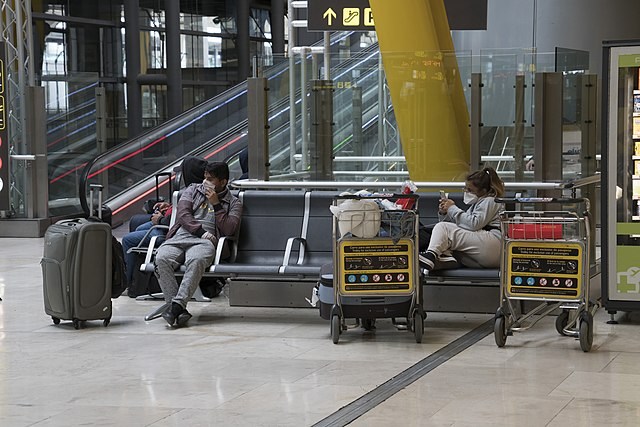A negative coronavirus test will soon be mandatory for travellers heading into Spain from Belgium after the latter was listed as one of several high-risk destinations by Madrid.
From 23 November, access to Spain through an airport or a port will be granted only to passengers who obtain a negative result on a coronavirus test taken within 72 hours of arrival in the country.
Related News
- EU vaccinations could begin 'in the first quarter of 2021'
- Belgium adds additional EU areas to its red travel zones
- Nearly all of Europe becomes red travel zone for Belgians
The Spanish Ministry of Health announced the new measure on Wednesday and said that it will apply to all high-risk countries on the basis of the 14-day infection rate per 100,000 inhabitants.
A country will be considered high-risk if its incidence rate surpasses 150 daily infections/100,000 inhabitants, according to El País.
As of Wednesday, only three countries were exempted from the measure: Norway, Finland and Greece.
When the measure comes into effect, arriving travellers will be asked to declare whether they have taken the test and should be able to produce proof if requested.
The document serving for proof should be the original one written in either Spanish or English and it can be in either paper or electronic format.
The news was received with caution in Spain, as some localities grapple with death tolls higher than those recorded during the first wave.
Overall, Spain's 14-day incidence rate for new coronavirus is of 600 new cases/100,000 inhabitants, well below Belgium's, which sat at 1,185, according to the latest EU figures.
Gabriela Galindo
The Brussels Times

